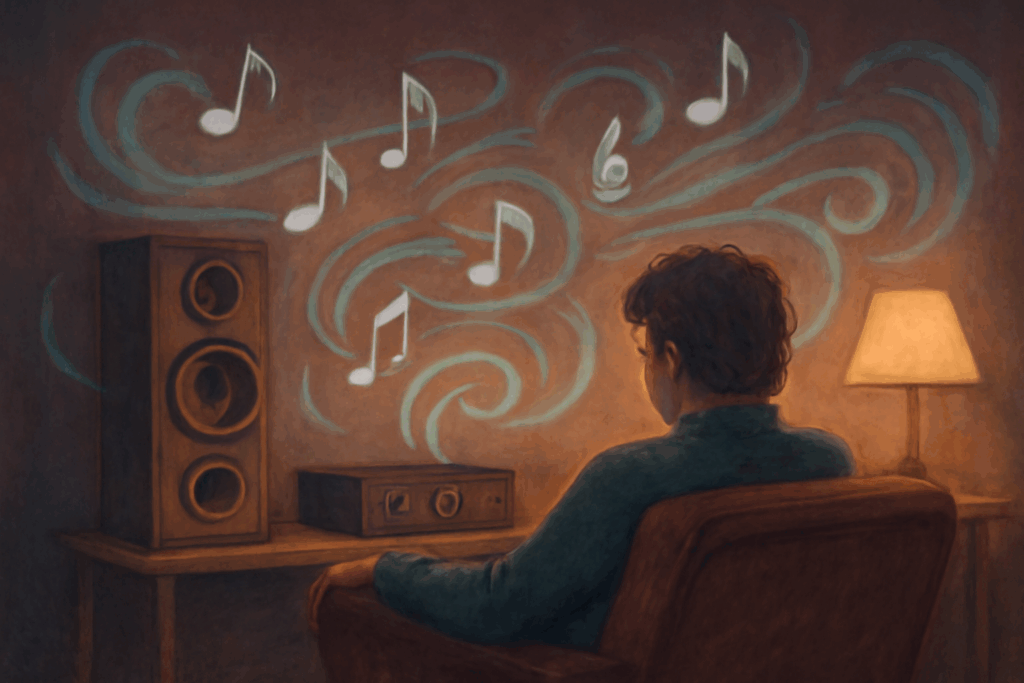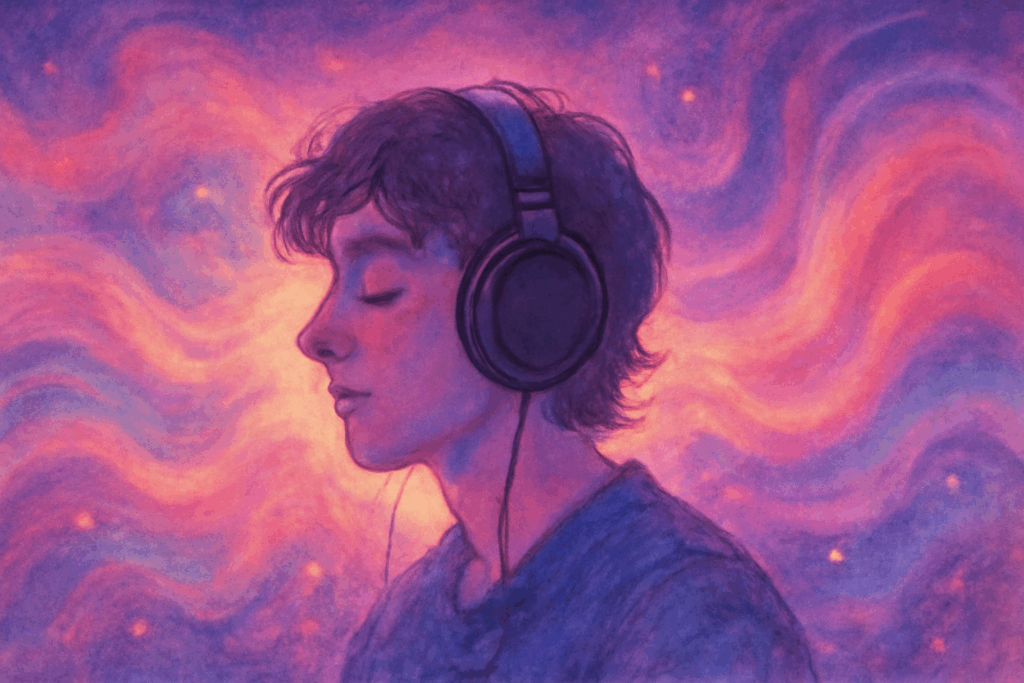Music on the internet never stands still. Every few years, a new genre or trend emerges that completely changes how we listen, create, and even earn from tracks. One of the most viral genres to capture the internet’s imagination in recent years is “slowed and reverb” — familiar songs pitched down, soaked in echo, and transformed into something new and emotionally resonant.
Scroll through YouTube or TikTok, and you’ll spot millions vibing to these dreamy edits. But under all that aesthetic, there’s an important and tough question: Can you actually monetize slowed and reverb songs? Or are creators walking a legal tightrope that could collapse at any minute?
From copyright law and YouTube’s Content ID, to Reddit creators’ real-world experiences and earning strategies, let’s pull back the curtain on the business and risks behind slowed and reverb tracks.

What Are Slowed + Reverb Songs?
Slowed and reverb tracks are mainstream or underground songs, digitally slowed and layered with echo or “reverb” effects. This editing technique gives a song a dreamy, relaxed vibe. The “slowed + reverb” phenomenon took off in 2017 and exploded during the COVID lockdown era. Popular among Gen Z and lo-fi communities, these tracks have now established their own subculture on YouTube, SoundCloud, TikTok, and Spotify.
“It recontextualizes songs that most everyone knows into a form with added melancholy, wistfulness, and weight. It’s an obvious trend for this time in history.” — Reddit user.
The Popularity: Data & Trends
Let’s take a look at just how massive this trend has become in a few short years.
| Track / Channel | Platform | Views/Streams | Date |
|---|---|---|---|
| Don Toliver’s “No Idea” (Slowed+Reverb) | YouTube | 6.8M+ | 2020 |
| Lil Uzi Vert’s “20 Min” (Slowed+Reverb) | YouTube | 17M+ | 2020 |
| Kanye West’s “Flashing Lights” Remix | YouTube | 10M+ | 2020 |
| Drake’s “Doing It Wrong” Remix | SoundCloud | 1.48M+ | 2020 |
| “Slowed + Reverb Sounds” (artist) | Spotify | 42.5M+ total streams | 2025 |
| “slow//reverb” (artist, top track) | Spotify | 39.7M streams | 2025 |
Source: Intersect Magazine, Songstats, ChartMetric, SoundCloud, Chosic
- TikTok: Remixes like “Lemonade” (slowed & reverb) are featured in over 2.1M TikToks.
- YouTube: Multiple channels specializing in slowed+reverb now boast millions of subscribers.
Can You Monetize Slowed and Reverb Songs? (Short Answer)
No, in most cases you cannot monetize slowed and reverb songs if you do not own the rights to the original music. Without express permission or a direct licensing agreement from the copyright holder, monetizing these tracks is almost always a violation of copyright law.
Even if you see ads on slowed+reverb videos, it’s very likely that:
- The original copyright holder is collecting the revenue, not the uploader.
- The video may be demonetized or taken down at any time due to copyright strikes.
- Legal action is a real risk if you profit from altered or derivative content without rights.
Copyright Law & Derivative Works
Key Copyright Concepts:
- Slowed+reverb edits are legally considered derivative works since they change the speed and atmosphere but use the core musical composition and master recording.
- Only the original copyright holder (or someone licensed by them) has the legal right to authorize derivative works for public release and monetization.
- You cannot clear a slowed+reverb track with a cover-song license; you need a special, direct license for derivative works.
“Distributing a derivative work without proper authorization can lead to legal issues, so it’s essential to know the rules…the original copyright holder can refuse permission for a derivative work for any reason.” — Symphonic Help Desk.
Platform Policies: YouTube, Spotify & SoundCloud
YouTube
- Content ID will flag slowed and reverb content using copyrighted music.
- Ad revenue for these videos usually goes to the original copyright holder, not the channel owner.
- Channels with mostly reused (non-original) content may be ineligible for monetization under YouTube’s reused content policy.
Spotify / Apple Music
- DSPs (Digital Service Providers) require licenses to accept remixes/derivatives. Uploading slowed+reverb tracks without rights is prohibited.
- Uploads usually get removed or copyright claimed.
SoundCloud
- Has stronger enforcement in recent years, especially as artists/reporting increases.
- Tracks may avoid detection for a time, but monetizing others’ songs is seen as risky by SoundCloud’s own users.
First-Hand Reddit Experiences
No discussion on the topic is complete without hearing directly from creators and musicians. Here are real, unfiltered Reddit stories and opinions:
On Monetizing Slow+Reverb Songs:
- “If you use someone else’s song without their consent, you could end up forfeiting most of your earnings. Even if you alter the track, it doesn’t make it yours.” — Reddit user
- “I’m doing mostly ‘slow & reverb’ edits on songs I enjoy myself and share them on Soundcloud… Now my question, do I own the copyright to these edits? Are they a new kind of artistic work? How does this work on Soundcloud, would they all just get flagged for copyright and I wouldn’t earn a single $?… TL;DR – No you can’t earn money from songs you don’t own.” — SoundCloud uploader
Risk of Strikes and Demonization:
“Likelihood to gain subscribers? Very low. Likelihood to gain entry into the Partner Program? Zero, due to YouTube’s policies around reused content.” — /r/NewTubers
“Thousands of people are doing the same thing, and there are countless copies… But if you start to profit off someone, they can come for you. And if you don’t have some good lawyers, you’ll lose.” — /r/NewTubers

Artists’ Perspectives:
“I would be perfectly okay with it as long as I received royalties.” — Musician on /r/askmusicians
“It’s aimed at individuals lacking creativity who merely slow down and add reverb to the work of genuine artists…” — /r/askmusicians
Emotional Impact vs. Monetization:
“Despite some videos having millions of views, many creators say they are unable to monetize their remixes for copyright reasons. It also often doesn’t matter to them. ‘As long as I can help the people that are in the comment sections, it’s all good.’” — Featured creator, Digital Trends
Data Table: Top Slowed + Reverb Tracks
Legitimate Ways to Make Money With Remixes
If you’re passionate about this genre and want to avoid copyright issues, there are still paths to monetize your creativity:
- Get Proper Licensing: Reach out to copyright holders and secure a derivative work license. This is mandatory for distribution and earning revenue.
- Use Royalty-Free/No Copyright Music: Remix music that’s in the public domain or provided as “no copyright” with commercial rights.
- Create Original Tracks in Slowed+Reverb Style: Compose your own music and apply slowed+reverb effects. You fully own these creations.
- Monetize Outside YouTube Ads: Grow a following and offer channel memberships, merch, or sponsorships once you have a significant, original catalog.
- Collaborate With Artists: Partner with indie musicians and offer them a split for remixes, ensuring they explicitly approve distribution and monetization.
Risks: Demonetization, Strikes & Legal Trouble
- Copyright Strikes: Three strikes on YouTube can result in channel termination and loss of all revenue.
- Loss of Monetization: Even if your slowed+reverb channel meets YouTube requirements, reused content or copyright flags result in denied or revoked monetization.
- Legal Action: Copyright holders have the right to sue for damages. If successful, you must forfeit related profits and even pay additional fines.
- Revenue Redirection: Even when ads show on your uploads, 100% of the income may go to rights owners, not you.
Final Thoughts
The slowed and reverb genre is mesmerizing, emotive, and has captured the attention of millions. However, when it comes to making money from editing and uploading slowed+reverb versions of copyrighted songs, the law is clear: You need rights-holder permission or you risk copyright strikes, demonetization, and potential lawsuits.
While you may sometimes see creators boasting big numbers or even advertising services for remix edits, the reality is that consistent, legal, and profitable monetization is extremely rare without agreements in place. But if you’re creative and original, you can still earn — just be prepared to do the work of getting licenses or working with no-copyright/royalty-free music.
If your motivation is sharing the emotional impact of these remixes rather than pure profit, there’s a massive passionate community waiting for you. But if you want to build a sustainable income, play by the rules and keep your creative ambitions (and bank account) safe.
FAQs About Monetizing Slowed + Reverb Songs
No, unless you have direct permission from the rights holder. Without a derivative work license, your video is illegal to monetize.
Copyright holders often “claim” the video via Content ID. Ads may run, but all revenue goes to the original artist or label.
Chances are high your video will be flagged, demonetized, or even taken down. Repeated violations can terminate your channel.
No. U.S. and international laws view these as “derivative works,” requiring the copyright holder’s license.
Yes! Use public domain or “no copyright” tracks (with commercial rights). You’re free to remix and monetize these.
Almost never. Transforming music for “entertainment” rarely qualifies as fair use for monetization, especially in music.
Not without the appropriate rights/licensing. Unlicensed uploads are at risk of takedown and cannot be legally monetized.
Sometimes, but you must negotiate and formalize an agreement with the copyright owner, often involving a revenue split.
Yes! If you compose and record the original song (or use public domain material), you’re free to monetize your own slowed+reverb versions.
Focus on original music, obtain explicit permissions, and connect with your audience through playlists, community, and creative twists on the genre.
If you’re just starting out, take the time to understand copyright and explore creative, legal ways to join the slowed and reverb community. Whether you’re doing it for fun, artistry, or as a side hustle, play it smart — the music world (and your future self) will thank you.

Candy is the social media manager and resident content creator at SSSlowedAndReverb. A DJ herself, she brings her deep love for slowed and reverb music into every post, blending real-world experience with internet culture to create content that resonates with fans and creators alike.